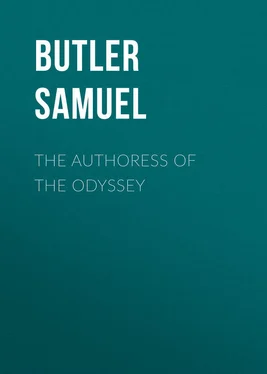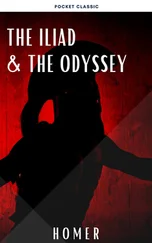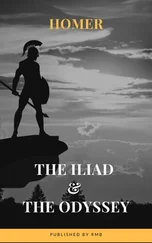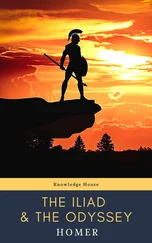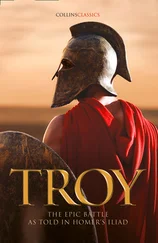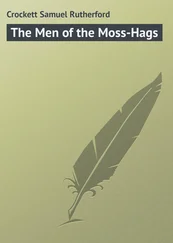Samuel Butler - The Authoress of the Odyssey
Здесь есть возможность читать онлайн «Samuel Butler - The Authoress of the Odyssey» — ознакомительный отрывок электронной книги совершенно бесплатно, а после прочтения отрывка купить полную версию. В некоторых случаях можно слушать аудио, скачать через торрент в формате fb2 и присутствует краткое содержание. Жанр: foreign_antique, foreign_prose, на английском языке. Описание произведения, (предисловие) а так же отзывы посетителей доступны на портале библиотеки ЛибКат.
- Название:The Authoress of the Odyssey
- Автор:
- Жанр:
- Год:неизвестен
- ISBN:нет данных
- Рейтинг книги:5 / 5. Голосов: 1
-
Избранное:Добавить в избранное
- Отзывы:
-
Ваша оценка:
- 100
- 1
- 2
- 3
- 4
- 5
The Authoress of the Odyssey: краткое содержание, описание и аннотация
Предлагаем к чтению аннотацию, описание, краткое содержание или предисловие (зависит от того, что написал сам автор книги «The Authoress of the Odyssey»). Если вы не нашли необходимую информацию о книге — напишите в комментариях, мы постараемся отыскать её.
The Authoress of the Odyssey — читать онлайн ознакомительный отрывок
Ниже представлен текст книги, разбитый по страницам. Система сохранения места последней прочитанной страницы, позволяет с удобством читать онлайн бесплатно книгу «The Authoress of the Odyssey», без необходимости каждый раз заново искать на чём Вы остановились. Поставьте закладку, и сможете в любой момент перейти на страницу, на которой закончили чтение.
Интервал:
Закладка:
The view that the writer might have lived more in the steward's room than with the great people of the house served (I say it with shame) to quiet me for a time, but by and by it struck me that though the men often both said and did things that no man would say or do, the women were always ladies when the writer chose to make them so. How could it be that a servant's hall bard should so often go hopelessly wrong with his men, and yet be so exquisitively right with every single one of his women? But still I did not catch it. It was not till I got to Circe that it flashed upon me that I was reading the work, not of an old man, but of a young woman – and of one who knew not much more about what men can and cannot do than I had found her know about the milking of ewes in the cave of Polyphemus.
The more I think of it the more I wonder at my own stupidity, for I remember that when I was a boy at school I used to say the Odyssey was the Iliad's wife, and that it was written by a clergyman. But however this may be, as soon as the idea that the writer was a woman – and a young one – presented itself to me, I felt that here was the reading of the riddle that had so long baffled me. I tried to divest myself of it, but it would not go; as long as I kept to it, everything cohered and was in its right place, and when I set it aside all was wrong again; I did not seek my conclusion; I did not even know it by sight so as to look for it; it accosted me, introduced itself as my conclusion, and vowed that it would never leave me; whereon, being struck with its appearance, I let it stay with me on probation for a week or two during which I was charmed with the propriety of all it said or did, and then bade it take rank with the convictions to which I was most firmly wedded; but I need hardly say that it was a long time before I came to see that the poem was all of it written at Trapani, and that the writer had introduced herself into her work under the name of Nausicaa.
I will deal with these points later, but would point out that the moment we refuse to attribute the Odyssey to the writer of the Iliad (whom we should alone call Homer) it becomes an anonymous work; and the first thing that a critic will set himself to do when he considers an anonymous work is to determine the sex of the writer. This, even when women are posing as men, is seldom difficult – indeed it is done almost invariably with success as often as an anonymous work is published – and when any one writes with the frankness and spontaneity which are such an irresistible charm in the Odyssey , it is not only not difficult but exceedingly easy; difficulty will only arise, if the critic is, as we have all been in this case, dominated by a deeply-rooted preconceived opinion, and if also there is some strong à priori improbability in the supposition that the writer was a woman.
It may be urged that it is extremely improbable that any woman in any age should write such a masterpiece as the Odyssey . But so it also is that any man should do so. In all the many hundreds of years since the Odyssey was written, no man has been able to write another that will compare with it. It was extremely improbable that the son of a Stratford wool-stapler should write Hamlet , or that a Bedfordshire tinker should produce such a masterpiece as Pilgrim's Progress . Phenomenal works imply a phenomenal workman, but there are phenomenal women as well as phenomenal men, and though there is much in the Iliad which no woman, however phenomenal, can be supposed at all likely to have written, there is not a line in the Odyssey which a woman might not perfectly well write, and there is much beauty which a man would be almost certain to neglect. Moreover there are many mistakes in the Odyssey which a young woman might easily make, but which a man could hardly fall into – for example, making the wind whistle over waves at the end of Book ii., thinking that a lamb could live on two pulls a day at a ewe that was already milked (ix. 244, 245, and 308, 309), believing a ship to have a rudder at both ends (ix. 483, 540), thinking that dry and well-seasoned timber can be cut from a growing tree (v. 240), making a hawk while still on the wing tear its prey – a thing that no hawk can do (xv. 527).
I see that Messrs. Butcher and Lang omit ix. 483 in which the rudder is placed in the bows of a ship, but it is found in the text, and is the last kind of statement a copyist would be inclined to intercalate. Yet I could have found it in my heart to conceive the text in fault, had I not also found the writer explaining in Book v. 255 that Ulysses gave his raft a rudder "in order that he might be able to steer it." People whose ideas about rudders have become well defined will let the fact that a ship is steered by means of its rudder go without saying. Furthermore, not only does she explain that Ulysses would want a rudder to steer with, but later on (line 270) she tells us that he actually did use the rudder when he had made it, and, moreover, that he used it τεχνηέντως, or skilfully.
Young women know that a horse goes before a cart, and being told that the rudder guides the ship, are apt – and I have more than once found them do so – to believe that it goes in front of the ship. Probably the writer of the Odyssey forgot for the moment at which end the rudder should be. She thought it all over yesterday, and was not going to think it all over again to-day, so she put the rudder at both ends, intending to remove it from the one that should prove to be the wrong one; later on she forgot, or did not think it worth while to trouble about so small a detail.
So with Calypso's axe (v. 234-36). No one who was used to handling an axe would describe it so fully and tell us that it "suited Ulysses' hands," and was furnished with a handle. I have heard say that a celebrated female authoress was discovered to be a woman by her having spoken of a two-foot ruler instead of a two-foot rule , but over minuteness of description is deeper and stronger evidence of unfamiliarity than mistaken nomenclature is.
Such mistakes and self-betrayals as those above pointed out enhance rather than impair the charm of the Odyssey . Granted that the Odyssey is inferior to the Iliad in strength, robustness, and wealth of poetic imagery, I cannot think that it is inferior in its power of fascinating the reader. Indeed, if I had to sacrifice one or the other, I can hardly doubt that I should let the Iliad go rather than the Odyssey – just as if I had to sacrifice either Mont Blanc or Monte Rosa, I should sacrifice Mont Blanc, though I know it to be in many respects the grander mountain of the two. 5 5 Shakespeare, of course, is the whole chain of the Alps, comprising both Mont Blanc and Monte Rosa.
It should go, however, without saying that much which is charming in a woman's work would be ridiculous in a man's, and this is eminently exemplified in the Odyssey . If a woman wrote it, it is as lovely as the frontispiece of this volume, and becomes, if less vigorous, yet assuredly more wonderful than the Iliad ; if, on the other hand, it is by a man, the half Bayeux tapestry, half Botticelli's Venus rising from the sea, or Primavera, feeling with which it impresses us gives place to astonishment how any man could have written it. What is a right manner for a woman is a wrong one for a man, and vice versa . Jane Austen's young men, for example, are seldom very interesting, but it is only those who are blind to the exquisite truth and delicacy of Jane Austen's work who will feel any wish to complain of her for not understanding young men as well as she did young women.
The writer of a Times leading article (Feb. 4th, 1897) says:
Читать дальшеИнтервал:
Закладка:
Похожие книги на «The Authoress of the Odyssey»
Представляем Вашему вниманию похожие книги на «The Authoress of the Odyssey» списком для выбора. Мы отобрали схожую по названию и смыслу литературу в надежде предоставить читателям больше вариантов отыскать новые, интересные, ещё непрочитанные произведения.
Обсуждение, отзывы о книге «The Authoress of the Odyssey» и просто собственные мнения читателей. Оставьте ваши комментарии, напишите, что Вы думаете о произведении, его смысле или главных героях. Укажите что конкретно понравилось, а что нет, и почему Вы так считаете.
